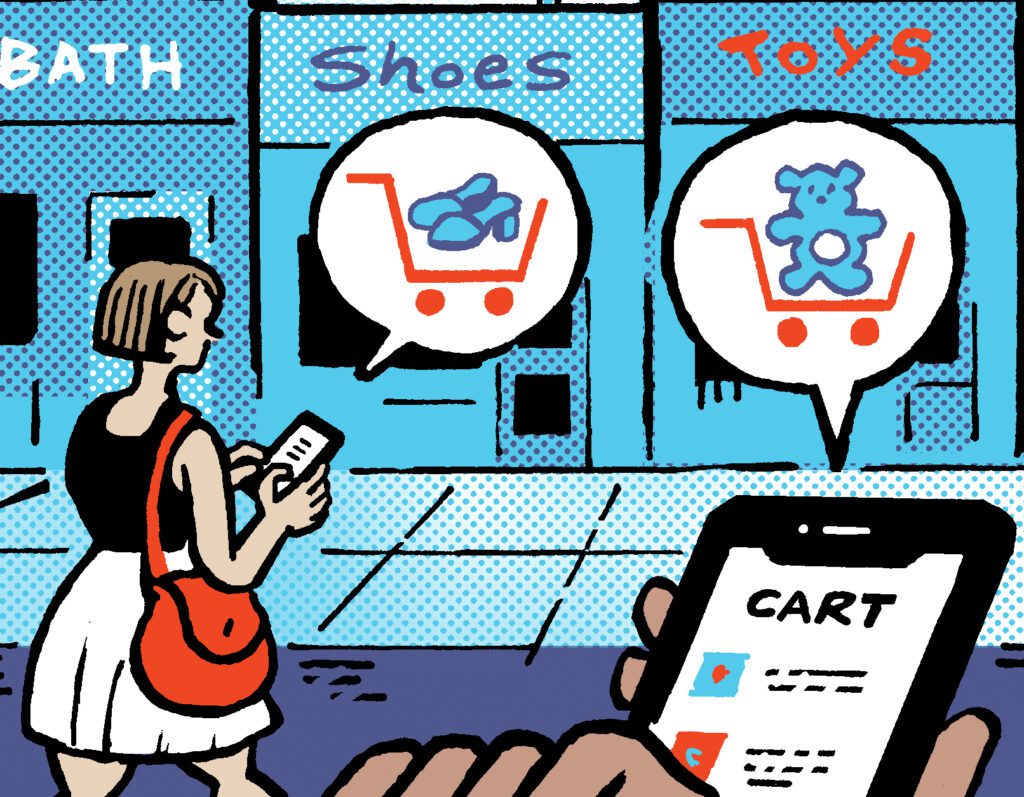For this week’s edition of the AdExchanger Commerce Media Newsletter, I caught up with Julio Loredo, senior director of media at Shipt, the same-day delivery service owned by Target.
Loredo is in an interesting position – by which I mean the “senior director of media” title. Loredo is a marketer. He spends Shipt’s own budgets to attract new paying customers and larger order volumes. But there’s also the revenue-generating retail media side of the business, called Shipt Media, which is the platform for retailers and products to promote themselves within the Shipt marketplace.
There are, of course, overlaps between those two sides of the business. In fact, on Wednesday Loredo published a case study documenting the company’s work with the Yahoo DSP. The study outlines how when Shipt serves its own promotional ads, it can target at a local level and collaboratively feature retail partners or particular brand products.
When Home Depot launched a retail media network (RMN), it put a longtime in-house ad buyer in charge; Marriott, however, defaulted to a longtime ad sales leader. Sometimes, especially for a smaller retailer, the RMN leader’s remit includes the company’s own marketing and the revenue-generating ad sales business.
Shipt for ad tech
Last year, Shipt undertook an RFP for a third-party DSP vendor, Loredo told AdExchanger. The company was trying to A) pick up a potential missed opportunity in programmatic advertising across the web, and, B) create a replicable system for targeting people within ZIP codes or even tighter geofenced areas.
Shipt is already a sophisticated player on the big online platforms: Google and Meta, mostly, with TikTok, Snap and others rounding out the field. The RFP, which landed on Yahoo as the brand’s de facto DSP provider, opened up new ways to target particular local deals and product availabilities, Loredo said. With Yahoo, Shipt could also connect web impression to someone who Shipt knows – or at least is confident – has searched for something on its marketplace before, or perhaps even left a specific item in an online cart.
The locality element turned out to be quite complicated for Shipt, Loredo said. Certain items may or may not be carried by a retailer that works with Shipt in the area. Brands and stores also have promos that might apply only in a certain state or ZIP code, or even, say, a handful of specific stores in one state. Shipt also has information about its own capacity in a region which must be baked into the bidding logic. After all, Shipt has only so many personal shoppers in a given area.
Shipt’s media buyers must be cautious of targeting a likely customer only for that person to discover that the featured product is more expensive than advertised or unavailable, Loredo said. Or if Shipt doesn’t have personal shoppers available to field the order, the company risks losing a customer who was practically in hand.
Yahoo was able to incorporate that data and Shipt’s particulars for “thousands of ZIP codes and hundreds of thousands of products,” Loredo said. And then, he added, it’s about being able to determine which retailer and/or product is best to feature.
The messy middle
There can be a strange, shared middle ground between the RMN and the brand’s own marketing team.
In June, DoorDash, a similar kind of delivery marketplace, acquired the retail media startup Symbiosys for $175 million. Symbiosys pioneered a system it called “collaborative bidding,” in which a retailer or online marketplace might jointly bid on target audiences.
A retailer might know that people Googling “hot dogs to grill” in June, say, are disproportionately likely to sign up and fill out a large cart of all sorts of other stuff before the July 4 holiday. So it’s willing to put some of its own money behind that potential Hebrew National search ad, if it points to their store. A store chain might also boost retail media search impressions that indicate a young woman shopper, if there’s an overarching goal to boost that demographic.
Shipt is in a similar position. There are all sorts of ways to target, Loredo said. A brand could retarget someone who left their product in a cart, or physical proximity to a store. But Shipt also knows that, on average, certain products and searches lead to people with a “propensity to use” a same-day delivery service and become paid customers.
Shipt itself has a designation or persona for a type of audience – “You could even call it a segment, if you’d like,” Loredo said – which the company calls “Shepherds.” Specifically, these Shepherds are the types to host events, thus requiring lots of home supplies and groceries.
This more convoluted kind of real-time bidding setup is becoming more feasible as retail networks grow and AI-based solutions are able to break down the data and generate creative for any particular combination of locality, product type and personalized copy.
“I think the big takeaway,” Loredo said, “is automation and simplicity have to go hand in hand.”













